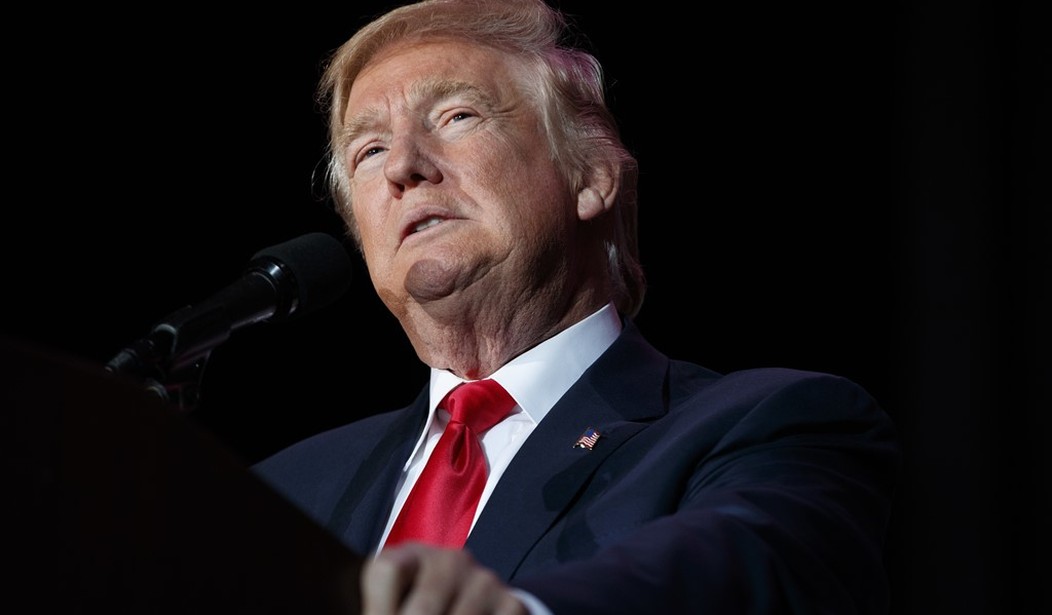Everyone's wondering just what kind of president Donald Trump will make. Democrats and Republicans, liberals and conservatives, and Tories and Whigs (there must still be a few of them tucked away somewhere) who are still talking to one another have embraced timid and tentative expectations. This did not include the haters, the Never Trumpers or the soreheads for Hillary Clinton, who would see the nation fail just to prove themselves right about him.
Most of us who appreciate the democratic values and the republic's constitutional framework haven't had a clue as to the attitudes and qualities that will rest comfortably with Trump in the Oval Office. He was full of contradictions and contrariness during the campaign -- part of his rough-hewn charm -- but now it's time to govern. He has given a few hints, such as his effective rebuke of the Republicans in Congress for wanting to dismantle congressional ethics, which surprised some of his critics. This might even give pause to the sorehead losers, who seem determined to put every obstacle in his way.
Making America great again is not about returning to segregated schools and restoring Jim Crow. Nor is it about restraints on women and minorities in the land of opportunity, though some of the embittered Trump haters insist that's exactly what the Donald means by "again." That's become abundantly clear to anyone with an open mind. During the campaign, whether from the stump in a rural white working-class town or in a speech delivered in an inner-city black church, the Trump message was the same: a focus on the economic renewal he promised. Making America great again is about a restoration of the optimism generated after World War II, after America defeated Nazi Germany and imperial Japan. It's about who will listen to what Abraham Lincoln described as our "better angels." Necessary changes will follow.
Recommended
Trump said harsh and sometimes vulgar things during the campaign, but he fought hard and won with promises to the voters that Clinton and the Democrats ignored. In a candid moment of reflection, Vice President Joe Biden spoke of the moment he first realized, "We may lose this election." He was impressed by the high-energy enthusiasm in the Trump crowds in working-class cities and towns like Scranton, Pennsylvania, where he grew up.
He told the Los Angeles Times: "They're all the people I grew up with. They're their kids. And they're not racist. They're not sexist. But we didn't talk to them." He said his party, once the undisputed champion of the working class, has allowed "a bit or elitism" to creep in. Yes, a bit.
But Trump targeted elites in Republican ranks as well. The New Yorker describes his Republican supporters who oppose these elites as "pro-Trump intellectuals." Many high-minded Republicans criticize the intellectuals as an oxymoron because the president-elect is prone to spontaneous, quixotic, unrelated and unpredictable tweets without philosophical cohesion. But these intellectuals look behind the pugilism, where they find "a relatively coherent theory of governance, rooted in conservative political thought, which could provide an antidote to a Republican Party grown rigid and ineffective."
These conservatives tuck Trump issues into a conservative bed of Procrustean proportions, chopping off what does not fit. But they're coalescing around familiar Trump goals, like secure borders, economic nationalism and interest-based foreign policy. Jeffrey Lord, a former aide of President Reagan, is one who defends the Donald as a "serious guy." He reminds audiences that Reagan was once dismissed as merely an actor. Mark Bauerlein, an English professor at Emory University, calls the Trump promise to reassert America's control of its borders an appeal to the patriotism that unapologetically proclaims, "This is our home!"
Larry Arnn, president of Hillsdale College, urges skeptics not to be put off by Trump's lack of "lingo of conservatism" because there's a lot to appreciate, including his obstinate refusal to bow to political correctness or identity politics. He says the president-elect clearly wants to represent all citizens, his term that emphasizes status under the law. In Imprimis, the Hillsdale newsletter, Arnn singles out Betsy DeVos, Trump's nominee for U.S. secretary of education, as a fighter for school choice and local control, which would bring authority for schools closer to the students.
Former Secretary of State Henry Kissinger observes that Trump follows a president who many believe "basically withdrew America from international politics." This gives him an extraordinary opportunity to restore strong moral leadership in the affairs of nations and offer a different form of analysis than President Obama's anemic one. This enables him to raise issues of great import. And "if they're addressed properly, (they) could lead to good or great results." We'll soon see.
Charles Kesler, a professor of political science at Claremont McKenna College and the editor of the Claremont Review of Books, calls Trump's election "a liberating moment for conservatism." We'll soon learn what that means, too.

























Join the conversation as a VIP Member